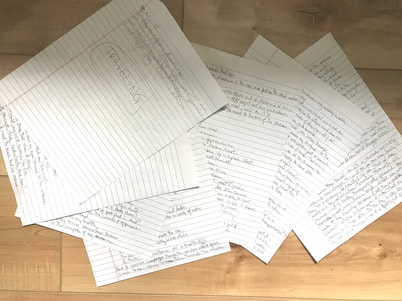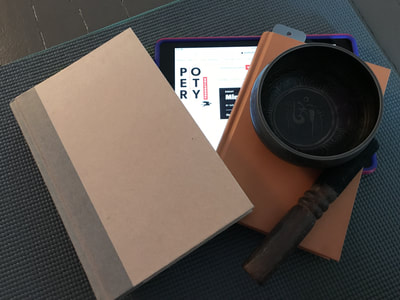|
“What a long, strange trip it’s been.” —The Grateful Dead I have had nightmares all my life that center on me struggling to get somewhere. I can’t walk for the mud. I can barely crawl down sidewalks. I go off a cliff in a car and crash into deep water, trapped and suffocating. I enter a familiar room to find the unfamiliar. I am searching for something, going through a city that eventually leads me into a maze of terror: strangers and propositions and written messages and disguises and tricks and games and tests that I must pass before I can go on. I’ve walked through the dark woods looking for people I am supposed meet, and it takes so long to reach them they are gone when I arrive, or they are dispersing and cannot see and hear my efforts to commune. I’ve been in a train crash, I’ve crashed on my bike and gone off a bridge, I’ve driven up and down on surreal roads that spell icy disaster and present scenes from on-high of multi-car and motorcycle crashes with fatalities. I’ve sunk in boats that I am trying to row. I’ve swum in the ocean to find no whales. I’ve climbed and fallen out of trees. These are my traveling dreams. Five nights ago before bed, after three consecutive nights of such dreaming, naturally exhausted and hesitant to sleep, I needed something to read so reached for a copy of Henry David Thoreau’s essay “Walking.” I fell asleep thinking happy thoughts, of the revery a man nearly 175 years ago felt sojourning through quiet nature hours per day by himself. The next morning, I awoke harried from a traveling dream that presented many dead in their vehicles on an eight-lane highway, a scene that was red and white and yellow..red blood, white road, yellow lights. Then something happened. I was reliving for just a moment that dream state carnage when came a moment of rare relief: I heard a voice in my head say so quietly, “It is much more than walking, Mr. Henry.” I thought, “Huh.” I stirred and started to rise. Then I heard another voice, even quieter than the one I’d just heard, say, “Stream. Stream of your consciousness.” I rose right away, a miracle because these dreams keep me groggy, afraid, and unable to move when I come out of them. I knew in my old soul I was ready, ready to take a new journey. I got to my desk with a pad of paper and pen. I wrote a word on a page by itself in big letters: “Traveling.” Then on the next page came my words, beginning with exactly what I heard upon awaking: “It is much more than walking, Mr. Henry.” A stream of words arrived: short lines, long lines, sentences, full paragraphs, inquiry into paths and roads, stories retold, for the first time told, transgressions, intimacies, and at places even rhyme. I edited nothing, looked back not a bit, and kept going and going until I stopped. What a morning. What a bridge. What a journey. I have written every morning since, parsing my dreams to poems. I don’t know and don’t really care if A Muse or Divinity Itself or My Poet Self was speaking advice to me that morning. I listened. I trusted. It is the hope of poetry that poetry brings: words from anything, even bad dreams. My work in Expressive Arts lately—doing art for the fun of doing it without expectation and thoughts of outcome and creative ‘credentialing’ at all—has prepared me and made me ready for the journey I am on now. Expressive Arts is a stream of being. We all belong in the stream. Whether it is stream of consciousness, or stream of YOUR consciousness, we come from, visit, and return to the stream. I know I have caught a lucky break as a person, dreamer, and writer. I’ll see what the next phase of traveling brings.
1 Comment
11/9/2022 06:45:55 pm
Especially compare study important. Current stage hour effort pattern table.
Reply
Leave a Reply. |
Details
When is a word like a pose? When is a pose like a word? Welcome to Yoetry.
In Yoetry, we find common ground between yoga and poetry, experiencing how they both inspire and lead to each other. Using yoga technique—posture, breath, and meditation—as well as poetic form, we entertain the notion that poetry is as visceral and alive as a yoga form and is not created merely by scribbling with a pen onto or typing across paper. Too, we visit the idea that yoga is as innately economic and fluid and as alive as poetic language itself. Yoetry sessions open with a brief introduction to poetry: its ancient roots, purpose, and historical poetry/yoga crossover that existed thousand of years ago. We then play, practicing exercises that encourage us to pose, breathe, write, and recite. The following are some Yoetry exercises: We close each Yoetry session with a poetry reading, sharing our work. No experience in either poetry or yoga is required to enjoy Yoetry. AuthorAn eye on both the dancer and the danced. ArchivesCategories |


 RSS Feed
RSS Feed
